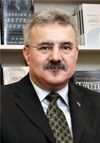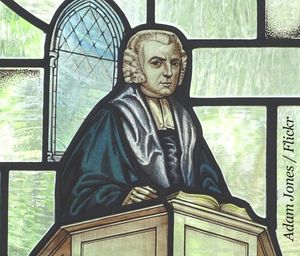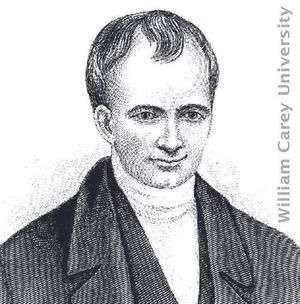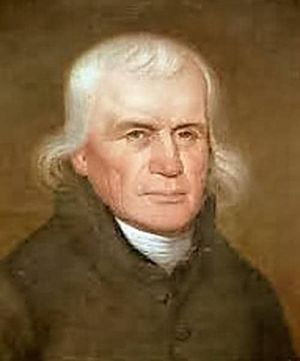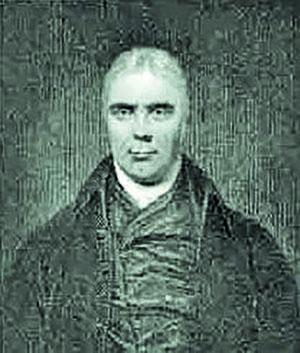Benjamin Francis was the youngest son of Enoch Francis (1688-1740), one of the most respected Welsh Baptist ministers of his day and an extremely gifted evangelist. But Francis hardly knew his father, for he was orphaned at the age of six.
God may well have used his father’s death to draw him to Christ, for Francis was later convinced that he experienced God’s saving grace when he was but a boy. When he was fifteen he was baptised at Swansea. Four years later he began to preach.
Study at Bristol
He soon became conscious of a need for further training. Far too many Baptists of that era scorned theological education, calling it going ‘down to Egypt’ for help. The young Francis, though, believed differently.
He went to the Bristol Baptist Academy, the only Baptist ministerial school in that day. There he found a vibrant evangelical Calvinism yoked to ardent evangelism. Francis’ studies at Bristol ran from 1753 to 1756.
When he first arrived, his knowledge of English was so slight that he could not even give thanks for his food in the language. Bernard Foskett (1685-1758), the principal of the academy, was convinced that Francis should be sent back to Wales because of the language barrier.
However, the tutor at the school, Hugh Evans (1713-1781), who was himself a Welshman and had been converted under the preaching of Enoch Francis, spoke up for Benjamin and persuaded Foskett to let him stay. Eventually Francis obtained a good enough knowledge of his adopted tongue to preach in English with the same ease as in Welsh.
It was this experience that underlay advice he gave to a nephew many years later in 1796: ‘Be sure to learn the English Grammar, and always endeavour to speak and to write grammatically. Early and constant practice will render speaking, writing, and spelling correctly, easy and familiar to you’.
Trials in ministry
After his graduation, Francis spent a brief period preaching at the Calvinistic Baptist work in Chipping Sodbury, Gloucestershire. Eventually, in 1757, he moved to Horsley, where he was ordained the following year.
He was twenty-four years of age. The church consisted of 66 members. Most of them were poor artisans and cloth-workers who were unable to provide financially for his support.
Francis would later describe the financial circumstances of most of the congregation as ‘extremely indigent’. Not long before his death, he remarked that his congregation was for the most part ‘poor, plain, and have not had the advantage of literature’.
He had no alternative but to find other means of monetary support. He reared pigs, grew his own vegetables and fruit, ran a school (like many other Baptist ministers of the day), and even tried his hand at business. The latter, unfortunately, was a complete failure.
Domestic sorrow
Along with these financial problems, Francis also went through a long series of domestic trials. His first wife and three of their children all died within the space of three months in 1765.
He was married again a year later, to Abigail Wallis. They had ten children, of whom they buried seven! Francis, though, drew much comfort from the genuine piety that a number of his children exhibited as they were dying.
For example, Hester, one of the children from his second marriage, was dying at the age of eleven in August 1790. She said to her mother: ‘My soul is as full of joy as it can contain — the Lord is become my salvation — the gates of heaven are open to me, and I shall soon be there’.
Her parting words to her father were: ‘I love you, but I love Christ more’.
These were deep trials, which could have easily embittered Francis or plunged him into melancholy. By God’s grace, however, he remained joyful in the midst of his sorrows.
Horsley
An evident witness to this joy was his irrepressible evangelism. We are told that he delighted in ‘telling poor sinners the unsearch-able riches of his compassionate Redeemer’.
During his time at Horsley, Francis had the privilege of baptising nearly 450 persons who had been converted through his ministry. At the time of his death the number of members in the church had risen to 252.
The meeting-house had to be enlarged three times during his ministry, so that by the early nineteenth century the church was one of the largest in the British Calvinistic Baptist community.
It is noteworthy that Francis attributed much of the success that attended his preaching to the church’s Sunday prayer meetings, held at six o’clock in the morning and before the afternoon service.
Fifty or sixty would come to the Sunday morning prayer meeting, while at the afternoon prayer meeting, the vestry would literally overflow with people.
Indefatigable
It is also noteworthy that his indefatigable preaching and evangelism were not limited to Horsley. His son-in-law, Thomas Flint (d.1819), drew up a biographical sketch of Francis within a few weeks of his death in December 1799.
In it he details some of Francis’ itinerant ministry. To grasp its extent one needs to trace his preaching circuit on a contemporary map and remember that in the eighteenth century travel to a town but twenty miles away was a significant undertaking.
Flint wrote: ‘He was the first means of introducing evangelical religion into many dark towns and villages in all the neighbourhood round [Horsley]. For many years he made excursions monthly into the most uninstructed parts of Gloucestershire, Worcestershire and Wiltshire; besides visiting his brethren, and strengthening their hands in God.
‘In the course of his route through Worcestershire, which he regularly attended from about 1772 to 1784, it appears he had preached in Cheltenham 130 Sermons, at Tewkesbury 136, at Pershore 137, and at Upton upon Severn 180.’
Extensive labours
Flint’s narrative continues: ‘His manner was to set out from home on Monday morning, and return on Friday evening, after taking a circuit of 90 miles, and preaching every evening. In Wiltshire, on the other side of Horsley, he established a monthly lecture at Malmesbury which he supplied from 1771 to 1799, so that he preached there 282 sermons, and for the latter part of the time he reached as far as Christian-Malford where he had preached 84 Sermons.
‘He extended his journey frequently as far as Devizes, 30 miles from home, where he preached 56 times, and oftener to Melksham, Frome, Trowbridge, and Bradford, at each of which four places he had preached 90 Sermons.
‘At Wotton-under-edge, seven miles from Horsley, he kept up a monthly lecture for thirty years and preached there 394 times. At Uley, five miles distant, he maintained another stated lecture for many years, and had preached 350 Sermons there.’
In addition to these extensive labours, he regularly preached in places as far away as London and Dublin, Portsmouth and Plymouth, and undertook repeated preaching tours of his native Wales.
His preaching
When it comes to Francis’ literary remains, we do have some poems that he wrote and a number of elegies. Subjects of the latter included John Gill, the doyen of eighteenth-century Calvinistic Baptist theology, George Whitefield (1714-1770), the great evangelist, and the ‘seraphic’ Samuel Pearce (1766-1799).
There is also a two-volume collection of his hymns in Welsh, entitled Aleluia. Only a few of these hymns have been translated into English. But it is disappointing that given his extensive preaching, not one of his sermons appears to have been preserved.
When Thomas Flint came to describe his preaching, he emphasized that Francis was always concerned ‘to declare the whole counsel of God’, even when he preached for other denominational bodies. While he was firm in expressing his doctrinal convictions, he was also a compassionate preacher, one who often wept openly for his hearers.
Possibly the closest we get to hearing the tone of his preaching are in circular letters he wrote for the ‘Western Association’, the Baptist Association to which his church belonged. Next month, we shall look at some of the themes of those letters.


